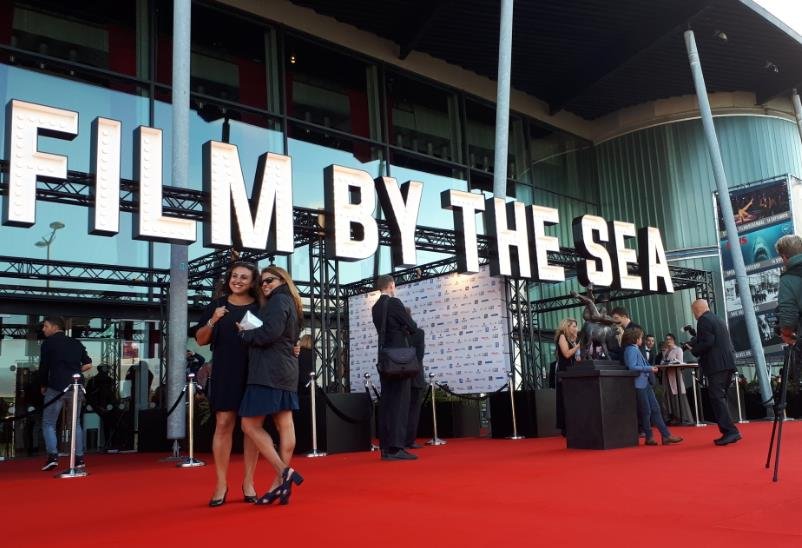Jeddah – The Fourth Edition of the Red Sea International Film Festival (RSIFF) opened in spectacular fashion on Thursday evening in the historic Al-Balad district. The event, which runs until December 14, is a showcase of cinema from 81 countries, with 130 films being screened.
The Red Sea Film Festival has quickly become one of the region’s most anticipated cultural events. As Saudi Arabia pushes to reshape its global image, this festival represents a significant shift towards its growing film industry. More than just a celebration of cinema, the festival has become a platform for global talents and a symbol of Saudi Arabia’s ambitions to position itself as a cultural powerhouse.
A Grand Opening and a Legacy of Cinema
One of the standout moments of the opening ceremony was the address by American film director and producer Spike Lee, who has now visited Saudi Arabia three times. His first trip was in the 1990s when he made history by filming his iconic movie Malcolm X in Mecca. Lee was granted special permission by Saudi authorities to shoot in the holy city during Hajj, a significant moment in the relationship between Hollywood and Saudi Arabia.
“I was not allowed to go into Makkah. I am a non-Muslim. But we got what we needed,” Lee reflected during the ceremony, sharing the importance of that experience for both him personally and for the film industry.
Lee’s words were more than just a nostalgic look back at the past. They highlighted the Kingdom’s changing approach to cinema and the growing opportunities for filmmakers in the region. His involvement in this year’s festival as the president of the jury, which will select the winner from 16 films representing the MENA, Asia, and Africa, underscores the festival’s ambition to play a key role in the future of global cinema.

Saudi Arabia’s Cinematic Renaissance
In 2018, Saudi Arabia ended its 35-year cinema ban, marking a new chapter in the country’s relationship with film. The opening of cinemas in Riyadh that year was a game-changer, and just three years later, the Kingdom launched one of the most ambitious film festivals in the region. The Red Sea International Film Festival is part of this bold vision, with a theme this year of “The New Home of Film.” The festival aims to be a central hub for innovation in cinema, bridging East and West and bringing fresh, diverse voices to the forefront of the industry.
Spike Lee’s statement, “This is where we are going to see the future of cinema, right here in this festival,” perfectly encapsulates the festival’s objective. Saudi Arabia is positioning itself not just as a consumer of global cinema but as an influential creator and distributor of films.
A Glimpse at the Honorees and the Star-Studded Red Carpet
The opening ceremony was as much about the glittering stars as it was about the films themselves. Among the honorees, Bollywood superstar Aamir Khan was awarded an honorary recognition for his immense contribution to global cinema. Khan, known for his role as both actor and producer, reflected on his journey from nervous newcomer to one of the industry’s most respected figures.
In his speech, Khan shared how his career as a producer began with the success of Lagaan, a landmark film in Indian cinema. Despite his immense success, Khan admitted to still feeling nervous with every new project. He attributed much of his success to taking risks and working with people who inspired him, saying, “If you want to do great work, you have to take risks like the people you look up to.”
Other luminaries such as Vin Diesel, Emily Blunt, Catherine Zeta-Jones, Michael Douglas, Farhan Akhtar, and Will Smith graced the red carpet, adding to the event’s star-studded ambiance. Their presence serves as a reminder of the global importance of the festival and its place in the ever-expanding world of cinema.
The Jury and Competition
In addition to Spike Lee’s role as president of the jury, the competition segment of the festival promises to be an exciting one. The 16 films competing this year come from the MENA region, Asia, and Africa, showcasing diverse stories from emerging filmmakers. The festival has also introduced a unique element this year: audience participation in selecting the winner. This democratic approach not only engages local audiences but also underscores the festival’s commitment to inclusivity.
Last year, the Pakistani-Canadian film In Flames won the prestigious award, a recognition that brought international attention to the growing talent within the South Asian film industry.
Looking Ahead: Saudi Arabia’s Cultural Future
The Red Sea International Film Festival is not just about showcasing films—it is about shaping the future of Saudi Arabia’s cultural landscape. As the Kingdom continues to invest heavily in its Vision 2030 goals, the festival plays a pivotal role in establishing Saudi Arabia as a centre of cultural exchange, creativity, and artistic expression.
With its focus on bringing global talents together, showcasing cutting-edge films, and promoting dialogue between filmmakers and audiences, the festival is a testament to the Kingdom’s broader cultural ambitions. What started as a country with no cinemas just a few years ago is now a host to one of the region’s most important and forward-thinking cultural events.
As the festival continues to unfold, it’s clear that Saudi Arabia’s film industry is on the rise, and the Red Sea International Film Festival will continue to play a crucial role in this transformation.
